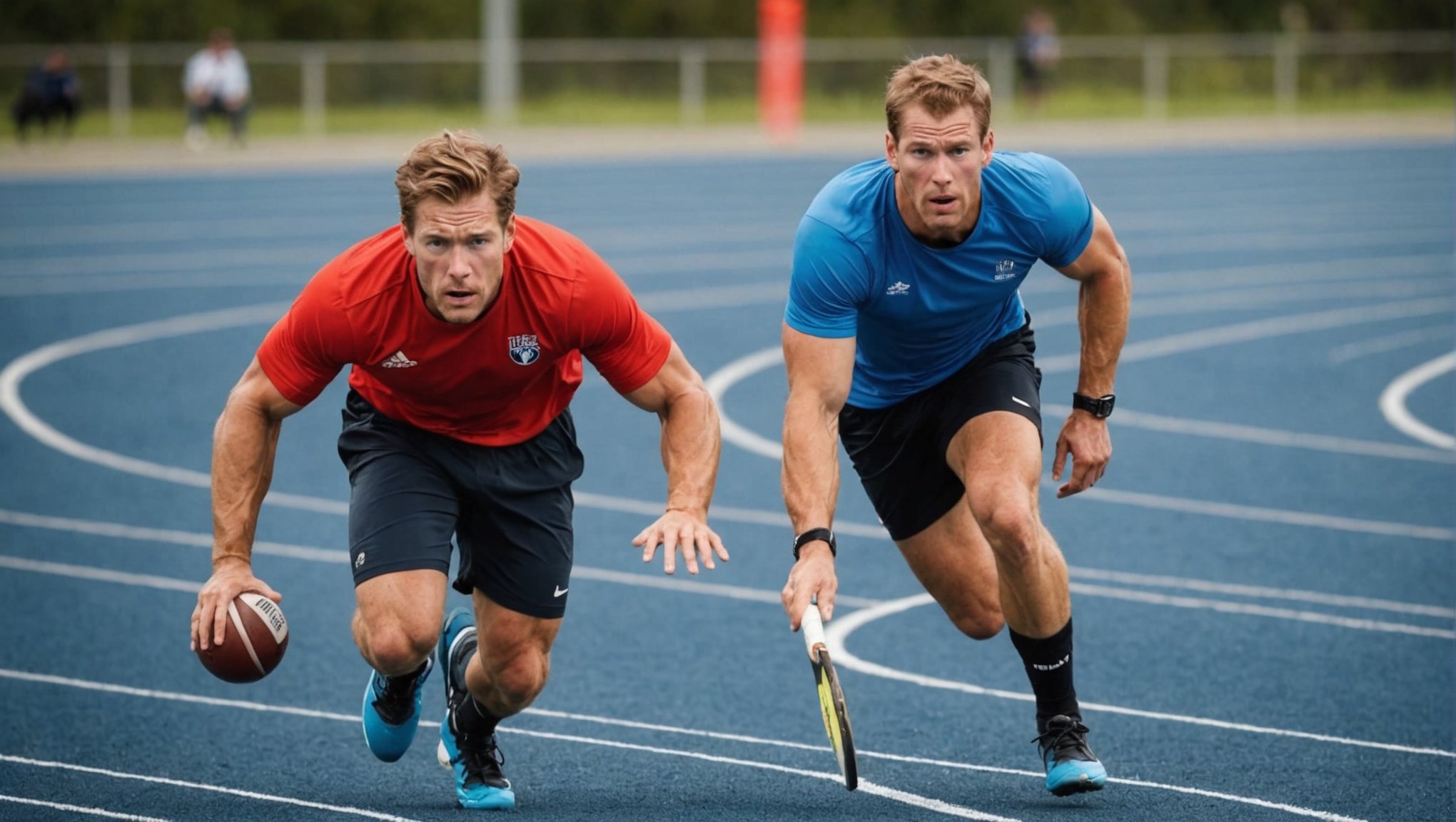Understanding Mental Toughness
Mental resilience is a crucial component of an athlete’s toolkit. It encompasses an individual’s capacity to remain steadfast and focused amidst pressure and adversity. In the realm of sports, psychological strength not only boosts performance but also fosters an enduring love for the game.
Mentally tough athletes share distinctive characteristics that set them apart. These individuals exhibit unwavering confidence, a robust determination to succeed, and an ability to stay calm under pressure. Their athlete mindset is defined by persistence and the continuous pursuit of excellence, even in the face of challenges.
Topic to read : Unlocking Peak Performance: Effective Sleep Strategies for Athlete Recovery
The significance of mental resilience is particularly evident when athletes encounter setbacks. Whether it’s a temporary failure, an unexpected injury, or performance slumps, mental toughness allows athletes to rebound effectively. Through developing and harnessing psychological strength, athletes can maintain focus and motivation, learn from their experiences, and continue to persevere towards their goals.
In essence, cultivating an athlete mindset intertwined with mental toughness is indispensable for success in sports. It empowers athletes to confront obstacles head-on, inspiring confidence and promoting resilience. This psychological framework supports athletes not only during competitions but throughout their entire sporting journey.
Also read : Essential Strength Exercises: Your Guide to Preventing Shoulder Injuries for Athletes
Strategies for Building Mental Toughness
Building mental toughness requires a blend of resilience strategies and effective coping mechanisms. One powerful method is visualization techniques. By mentally rehearsing scenarios, athletes and individuals can enhance their performance and increase confidence. Visualization involves imagining successful outcomes, which can prepare the mind for real-life circumstances.
Another effective strategy is harnessing the power of positive self-talk and affirmations. Words shape perceptions and attitudes, and positive self-dialogue can transform challenges into manageable tasks. Affirmations like “I am capable” or “I can overcome this” reinforce a mindset oriented towards success, resilience, and performance improvement.
Realistic Goal Setting
Setting realistic goals is crucial for both recovery and improvement. Goals should be specific, achievable, and time-bound. This approach provides clear direction and motivation, essential components for maintaining resilience and boosting performance. Additionally, breaking down larger objectives into smaller, manageable tasks prevents overwhelm and fosters a sense of achievement.
Everyone’s journey toward mental toughness is unique, but these strategies provide accessible pathways. They are designed to help anyone cope with adversity and enhance their performance in personal and professional arenas. Building resilience and improving performance is not about avoiding stress but developing mechanisms to harness it effectively.
Case Studies of Athletes Overcoming Setbacks
Exploring real-life recovery stories in sports psychology reveals the resilience of athletes. These stories highlight how athletes navigate challenges and use setbacks as stepping stones toward success.
Example 1: Successful Comeback Story
A renowned athlete faced a significant setback through a career-threatening injury. Rehabilitation and mental strength became central to their recovery strategy. By engaging in intensive physical therapy complemented by sports psychology sessions, they rebuilt both body and mind. This approach not only restored physical capabilities but also fortified mental resilience, leading to a triumphant return and a new level of performance. The key takeaway was the importance of persistence and the transformative power of a well-rounded recovery plan.
Example 2: Utilizing Support Systems
A different athlete’s journey underscores the crucial role of coaches and mentors. These support systems were pivotal, providing motivation and guidance throughout the recovery phase. A supportive environment significantly boosted the athlete’s confidence, facilitating a smoother transition back to competition. Post-setback, the athlete not only regained their form but also excelled, crediting their comeback to the collective strength of their support network.
Example 3: Personal Reflection and Growth
An athlete’s introspective journey after a setback led to profound personal growth. By engaging in self-reflection and cultivating mental resilience through techniques like mindfulness, they evolved beyond their former self. This transformation charted a path to set and achieve new future goals, illustrating the power of reflection in overcoming adversity.
Practical Exercises for Mental Toughness
Building mental resilience is crucial for enhancing athletic performance. Daily practices can significantly boost mental agility and focus. Here are some effective strategies:
-
Mindfulness Techniques and Meditation: Integrating mindfulness into your routine can be highly beneficial. Start by dedicating a few minutes daily to practice deep breathing or guided meditation. These techniques help cultivate awareness and reduce stress, which can substantially improve focus during sports training.
-
Journaling: Keep a daily journal to document your progress and emotions. This practice allows athletes to track improvements in physical performance and mental resilience. Reflecting on achievements and setbacks helps foster a better understanding of personal triggers and accomplishments. Moreover, reviewing journal entries after training sessions aids in recognising patterns and adjusting strategies accordingly.
-
Sports Training Integration**: Incorporating mental resilience practices into physical training schedules can enhance overall wellbeing. Break workout sessions with mindful breaks or employ visualisation techniques to mentally rehearse sporting tasks. Such methods improve concentration and adaptability under pressure.
These practices, when consistently followed, can lead to substantial improvements in mental toughness, ultimately contributing to superior athletic outcomes. By focusing on mental resilience alongside physical training, athletes can gain a competitive edge.
The Role of Coaching in Developing Mental Toughness
Coaching plays a crucial role in fostering mental resilience among athletes, ensuring they are well-prepared to face challenges. Effective coaching strategies are pivotal in athlete development, focusing on both physical and mental aspects of performance.
Coaches employ a variety of techniques to instill a growth mindset in athletes, emphasizing the importance of learning from failures and setbacks. This approach encourages athletes to view challenges as opportunities for growth rather than obstacles. Techniques such as visualisation, goal-setting, and positive self-talk are often utilised to reinforce this mindset, helping athletes build confidence and adaptability.
Equally significant is the role of continuous communication and feedback in the coaching process. This ongoing dialogue between coaches and athletes ensures that performance issues are addressed promptly and solutions are tailored to the individual needs of the athlete. Feedback, both constructive and supportive, aids in the athlete’s understanding of their strengths and areas for improvement.
To summarise, performance coaching not only enhances an athlete’s physical prowess but also their mental fortitude, equipping them with the resilience needed to excel in competitive environments. The integration of targeted coaching strategies is essential in transforming athletes into well-rounded and mentally tough competitors.











